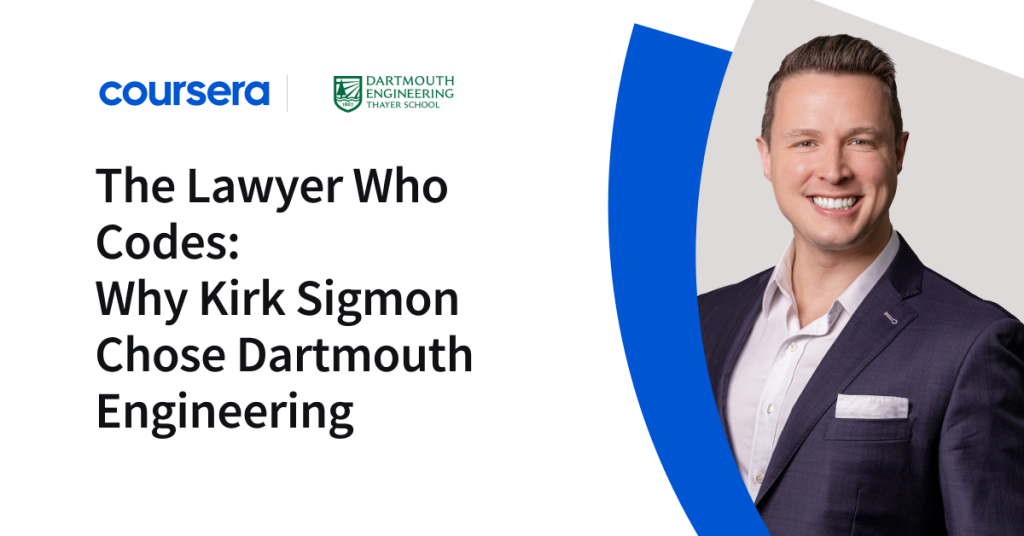
In an era where technology and law intersect more than ever, one attorney stands out for his unique approach to understanding the complexities of artificial intelligence. This lawyer, who has embraced the world of coding and engineering, is not just practicing law but is actively enhancing his expertise to better serve his clients. His journey into the realm of technology began with a decision to pursue a Master’s degree in Engineering, a choice he believes will significantly benefit his career.
Embracing a Unique Educational Path
With a background that includes degrees in English Literature and Japanese, followed by a law degree, this attorney’s educational journey is anything but conventional. His early career took him to Japan, where he self-taught programming skills that would later inform his transition into intellectual property law. Recognizing the need for formal education in engineering, he pursued a Bachelor’s degree in Electrical Engineering, which opened doors to becoming a patent lawyer.
“This degree allowed me to sit for the patent bar,” he explains. “However, as I advanced in my career, my interest in AI grew, prompting me to seek further education.”
The Role of AI in Intellectual Property Law
While many may not associate AI with the legal field, this attorney finds himself at the forefront of discussions about data privacy and intellectual property rights related to AI technologies. His clients frequently inquire about the implications of machine learning models, pushing him to delve deeper into the technical aspects of AI.
“Clients often ask about the reversibility of machine learning models, which leads me to explore these concepts further,” he notes.
Although we are not yet in a world where AI poses criminal threats, he is engaged in exciting projects involving self-driving cars and machine learning applications that enhance business operations. To stay ahead, he sought to deepen his understanding of engineering principles through a specialized program.
Discovering the Right Program
His search for a suitable educational program led him to an online Master’s in Engineering, which he discovered while exploring AI courses. The curriculum, which includes machine learning, deep learning, and embedded systems, aligns perfectly with his professional needs.
“The program is comprehensive and directly applicable to my work,” he states. “It combines essential AI knowledge with engineering fundamentals, which is crucial for my role.”
His interactions with engineering professionals have highlighted the importance of being well-versed in their language and concepts. The program’s flexibility and the institution’s strong reputation made it an ideal choice for his busy lifestyle.
Real-World Applications and Community Engagement
Even while pursuing his degree, he has begun to see the benefits in his professional life. Working with companies in the autonomous vehicle sector, he applies his coursework in machine vision to engage meaningfully with engineers about innovative technologies.
“Many attorneys claiming expertise in AI lack practical programming experience,” he points out. “My coding background enhances my credibility and opens doors.”
He also integrates real-world legal challenges into his studies, developing projects that explore copyright issues related to AI, which directly connect to ongoing legal cases.
“The skills I’ve gained are immediately relevant to my career,” he emphasizes. “I can engage in discussions about the latest technologies with confidence.”
Despite the online format, he appreciates the sense of community fostered by dedicated educators who strive to connect with students personally. The small cohort size allows for a more intimate learning experience, complemented by hands-on projects that extend beyond theoretical knowledge.
“The professors genuinely care about our success and know us by name,” he shares. “This connection makes the online experience feel just as engaging as traditional learning.”
Looking Ahead
As he anticipates graduation in 2026, he will have accumulated five degrees, a testament to his commitment to continuous learning. This diverse skill set positions him uniquely within the legal landscape, particularly in the realm of AI.
“Most attorneys lack a deep understanding of AI, often relying on superficial knowledge,” he explains. “My hands-on experience with coding has opened many doors, and my education is already yielding significant benefits.”
While he acknowledges the rigorous nature of the coursework, he takes pride in his achievements and the challenges he has overcome.
“I’m proud of the hard work I’ve put into this program,” he states. “It’s not just a credential; it’s a rigorous academic pursuit that I take seriously.”
For prospective students, he advises brushing up on foundational skills before diving into advanced coursework.
“Coursera offers preparatory courses that can help you gauge your readiness for the demands of the program,” he suggests. “It’s essential to assess your ability to balance learning with other life commitments.”
Currently based in Washington, D.C., he looks forward to visiting the campus to further immerse himself in the community and gain firsthand experience of the engineering department. Even from a distance, he is already applying his newfound skills to enhance his legal practice and share knowledge globally.
“Understanding AI at a technical level is not just fascinating; it’s crucial for my work and establishes my authority in a field where many lawyers lack expertise,” he concludes.
This attorney’s journey illustrates that the path to expertise is often nonlinear. By merging law, engineering, and AI, he has carved out a unique niche that allows him to influence both the technological and legal realms, demonstrating that curiosity and dedication can bridge diverse fields.
